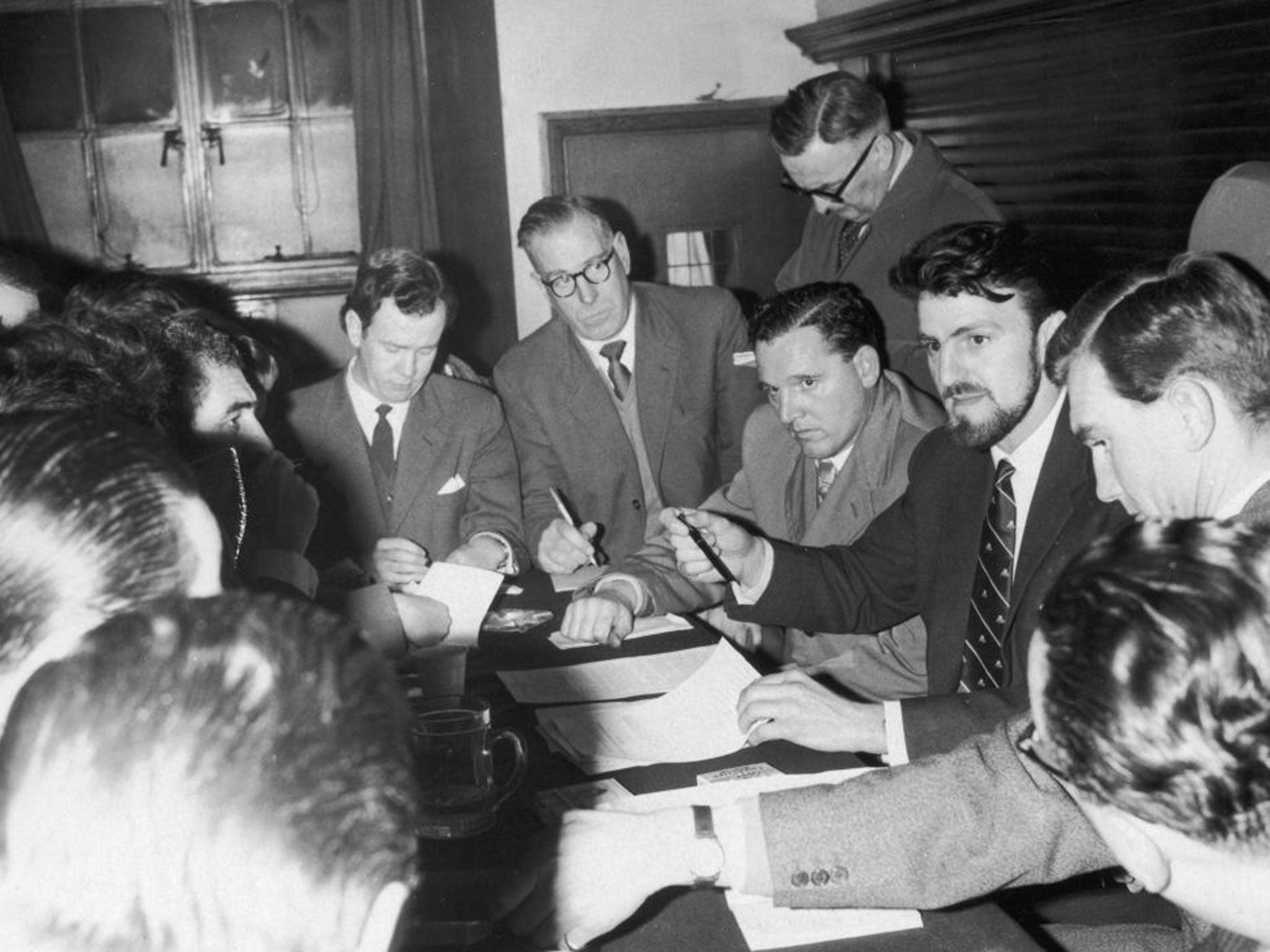The Last Word: Wayne Rooney makes a mockery of the rights footballers once fought for
England striker lacks the conviction to speak his mind, letting third parties do it

It’s been interminable, this question of which player might go where, and what’s worse is that there are four weeks to go until the Premier League season actually starts. But there’s still been time to make good on a summer plan to re-read a book which we all need to return to in these dismal days, when a £250,000-a-week footballer lets it be known that his feelings have been hurt by his manager – a claim for which there is minimal, going on for no, justification.
It’s not just the beauty of the journalist’s relationship – man to man – with the footballers he writes about which makes Arthur Hopcraft’s The Football Man so incredibly fine, but the fact that his subjects really are working-class heroes. They’re struggling to escape the penury and poverty of a working man’s life, fearing what they will fall back into if they fail, and yet they are not afraid to claim what is rightfully theirs. Hopcraft recalls one of the players’ meetings at Belle Vue in Manchester when the press were invited to sit in on the vote for strike action over the maximum wage, in 1961. “There was a certain amount of private ridicule among the reporters covering this prolonged story,” he writes. “The impression of professional footballers as Neolithic mumblers with their hands held out, palm upwards, never had much substance, but its suggestible comic qualities had persuaded credence in some quarters though.” Then Jimmy Hill stood up and astonished the press corps with his lucidity, much of it so quotable, and the players voted, to a man, to strike. “The meeting was serious, bitter, orderly,” Hopcraft reports.
They won their battle. In January 1961, three days before the strike notice was due to expire, the Football League capitulated and soon afterwards the feudal retain and transfer system went the same way, too, through the indefatigability of George Eastham, the Newcastle United schemer whose acrimonious dispute with his club meant that he did not play football for an entire year. There were other men like these.
Just ask Sir Bobby Charlton and Jimmy Armfield about Tommy Banks, the former Bolton Wanderers and England left-back whose birth as a miner’s son in 1929 – just as the Wall Street crash had hit – was so desperately unpromising. Banks, the only breadwinner in his household, was down the pit by 1945, the year his father died, and up on his feet during a landmark meeting of the Professional Footballers’ Association at Manchester’s Grand Hotel, in early January 1961, when another player had suggested that striking was wrong, because his own father, a miner, did not earn as much as he did. “I’d like to tell your father that I know the pits are a tough life,” Banks said. “But there won’t be 30,000 people watching him mine coal on Monday morning, while there will be 30,000 watching me trying to stop Brother [Stanley] Matthews here.”
Banks brought the house down. Neither articulate nor educated, his Lancashire vernacular that day was virtually incomprehensible but he did his own talking regardless. A contrast, it might be said, to Wayne Rooney, who apparently has not even had the conviction to speak his mind, allowing third parties – the ubiquitous “Sky sources” – to do it for him this week.
In 1961, the players were the heroes and the establishment clubs were the villains. Rarely can the modern Manchester United be characterised as victims but they are the ones who have been wronged. It is impossible for many to avoid the conclusion that Rooney is confecting a sense of injustice to manoeuvre himself a transfer, bastardising the liberties that Hill and Banks secured for him.
Those men would say a contract is a contract, once signed. The disrepute and trouble Rooney has heaped upon United by allowing the “sources” to do their darnedest ought to be a breach of that contract which, incidentally, offers a club minimal protection against him upping sticks whenever he pleases. The sports lawyer Ian Lynam, from the Charles Russell practice, has observed through Twitter this week that by putting in a transfer request Rooney would not be jeopardising his wages or even any loyalty bonus due to him. Only any unpaid instalments of a signing-on fee would be lost if he leaves. The significance of transfer requests is overstated in the media. “Without talking about specifics, players are very well protected with their contracts, and sometimes overprotected in my view,” the outgoing FA chairman David Bernstein observed last year.
Hopcraft observes that no other events in football did as much to lift the general standard of play as the fight to abolish the maximum wage and the retain and transfer system. He reflects the view that England might not have won the World Cup without those campaigns. To think that the fruits of their labours have delivered us to this.
Subscribe to Independent Premium to bookmark this article
Want to bookmark your favourite articles and stories to read or reference later? Start your Independent Premium subscription today.

Join our commenting forum
Join thought-provoking conversations, follow other Independent readers and see their replies